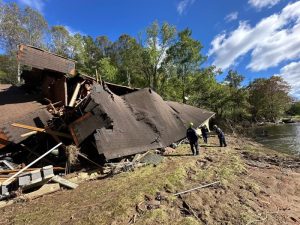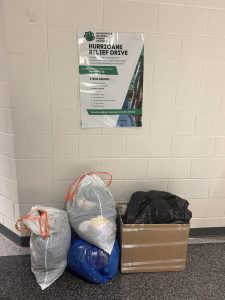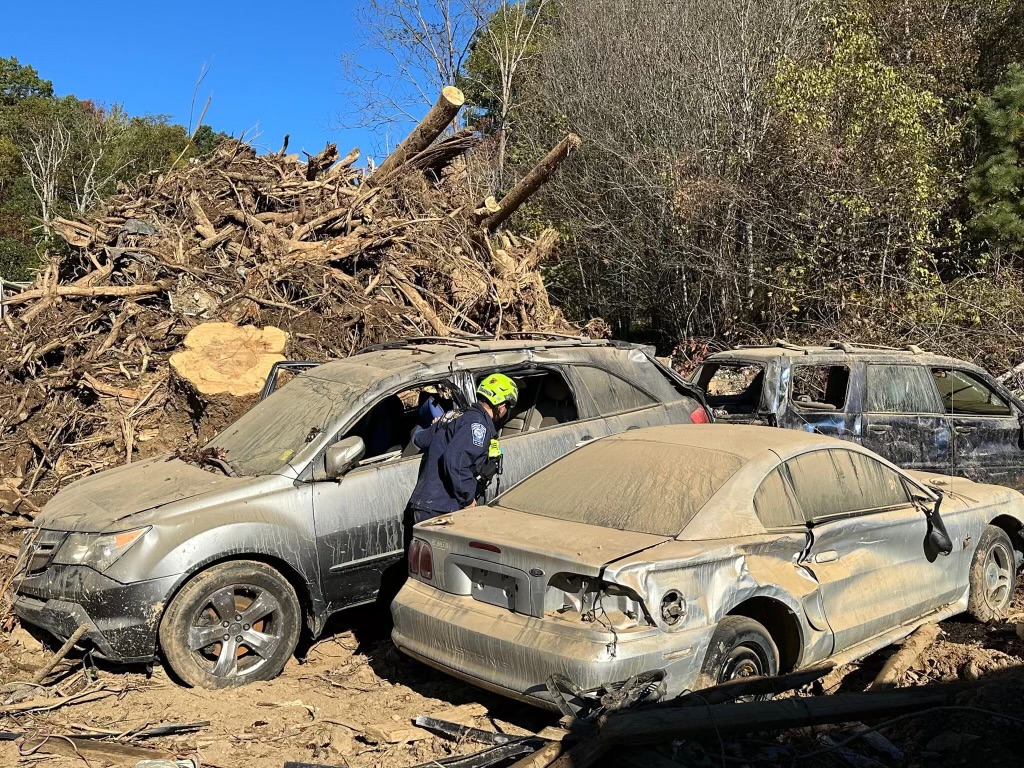In late September of 2024, Hurricane Helene traveled hundreds of miles along the East Coast, resulting in an estimated $53 billion in damage. Due to the relentlessness of the storm and the vastness of the damage, Woodgrove’s National Honor Society (NHS) decided to help by starting a supply drive. Immediate relief was provided by emergency services, such as the Federal Emergency Management Agency (FEMA), but even two months after the natural disaster, families are still struggling to get back on their feet and restore their previous quality of life. The hurricane drive started by Woodgrove NHS students is intended to help the ‘second wave’ of needs and provide overlooked items, such as winter clothes and school supplies. The goal of the drive is to collect basic necessities and deliver them to Boone, North Carolina, in Watauga County.

Working for FEMA as a Program Analyst for Public Assistance, Alicia Gillingham deals with funding projects and helping with local towns and cities when they need to rebuild bridges, roads, and buildings after disasters. “We work with the country every day before disasters happen to help people and communities understand and prepare for possible risks,” Gillingham stated. Programs such as FEMA are critical to helping areas that have been harshly impacted.
Gillingham explained, “After disasters, we support recovery mostly through Public Assistance.” FEMA has provided $524 million in Public Assistance for Hurricane Helene. FEMA also utilizes help from other community organizations, such as faith-based groups and larger organizations like the Red Cross. No matter the size of the group, they all share the common theme of wanting to help others. In reference to the benefits of Woodgrove’s hurricane drive, Gillingham remarked, “I think any time a community comes together to help one another, it’s helpful.”

After seeing the devastating effects of Hurricane Helene, senior Katie Tully, Vice President of School Based Services for this year’s Woodgrove NHS chapter, felt she needed to to help. With Hurricane Milton on the way after Helene, families that had already lost homes were at risk of being hit again. “I felt really bad for all these people. I was really scared that they would lose their lives. Knowing that this was about to happen and I couldn’t do anything about it made me really sad,” Tully explained. She quickly began brainstorming things her school could do. As Co-President of Woodgrove’s Fellowship Club, she encouraged club members to write letters during one of their October meetings. These letters contain words of encouragement for families. “Letters alone can make a huge difference,” Tully stated.
Inspired by the letter writing in the Fellowship Club, Tully took the idea to NHS, where the inducted members were given the opportunity to write letters to survivors in North Carolina. Additionally, the society went further and set up a drive, asking students and parents to donate. They requested items such as canned food, cleaning supplies, toiletries, children’s toys, or animal food, with an emphasis on warm clothing for the upcoming winter and school supplies for children in need. Members spread the word through flyers and announcements as well as emails that were sent out to parents. A cardboard box was placed at the front of the school to collect donations.
The drive stretched further to involve more of Western Loudoun’s community by continuing at Loudoun Valley High School. After hearing about it from a friend at Woodgrove, Senior Evelyn McCann, the Service Co-Chair of Loudoun Valley’s National Honor Society encouraged Valley to become a partner in collecting supplies. To help get the word out to students, McCann commented, “We put the opportunity on our service sheet, sent out a message to all our NHS members, and posted a flier to promote the drive.” Loudoun Valley is also asking for winter clothing, and their collected supplies will be delivered along with the donations from Woodgrove.
The drive ends on November 26, and the supplies will be transported to Boone, NC and the surrounding rural areas in early December. Those who donated will impact the communities in North Carolina and help many families struggling with the aftermath of the hurricane. Consider making a donation, because whether monetary or basic supplies, all donations will make a difference.



